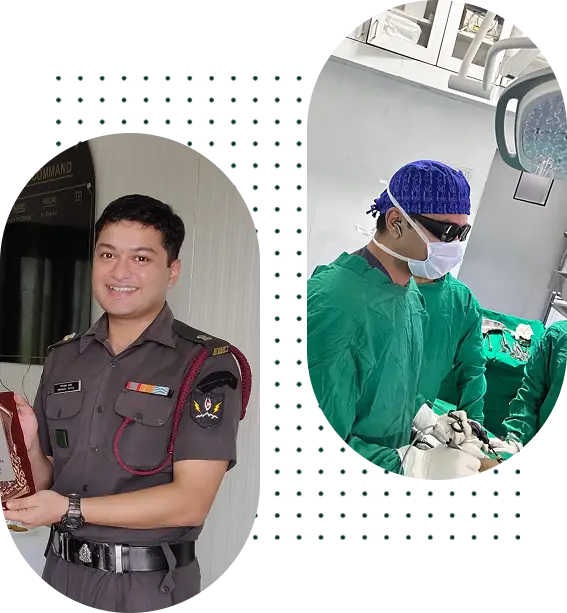Rectum Cancer Doctor in Kolkata
No one thinks about the colon and rectum until something feels unusual.
But rectal cancer rarely makes any noise. As a leading rectum cancer surgeon in Kolkata, Dr. (Maj) Ranajoy Dutta offers comprehensive rectum cancer treatments that combine surgical precision with advanced clinical techniques for better outcomes and quicker recovery.
What is Rectal Cancer?
Unlike colon cancer, rectal cancer poses unique challenges due to the tight confines of the pelvis, making surgical treatment and recovery more complex. But it’s highly manageable with the right specialist, like Dr. Dutta.

Rectal Cancer Types

Adenocarcinoma
The most common type of rectal cancer, originating in the glandular cells of the rectum

Mucinous Adenocarcinoma
A subtype of adenocarcinoma, this cancer produces a significant amount of mucus and tends to have a poorer prognosis compared to the typical adenocarcinoma.

Signet Ring Cell Carcinoma
A rare and aggressive form of adenocarcinoma where cancer cells appear as signet rings.

Neuroendocrine Tumors
These cancer forms in the hormone-producing cells of the rectum and are less common.

Squamous Cell Carcinoma
A rarer form of rectal cancer, this type originates in the flat, squamous cells lining the rectum. It’s more likely to occur in the lower part of the rectum.3
Rectal Cancer Causes

Call for Appointments
Begin your treatment journey with expert care. Schedule your appointment with Kolkata’s esteemed cancer specialist Dr. (Maj) Ranajoy Dutta today.

Rectal Cancer Symptoms

Rectal Cancer Diagnosis

Colonoscopy

Rectal Ultrasound (Endorectal Ultrasound)

CT Scan

MRI
Rectum Cancer Treatment in Kolkata
Rectum cancer treatment involves a personalised plan based on the tumour’s stage and location, along with rectal cancer causes and symptoms. Dr. Ranajoy Dutta often combines surgery, radiation, and chemotherapy.
Depending on the severity, procedures may include Low Anterior Resection (LAR) or abdominoperineal resection. Whenever possible, Dr. Ranajoy prefers sphincter-sparing techniques and minimally invasive procedures to maintain bowel function.
For more advanced or aggressive tumours, targeted drug therapies and precision-based systemic treatments may be included in the rectum cancer treatment plan.
Fill The Form
Contact Form

Make Appointment &
Take Care Of Your
Healthy Life

